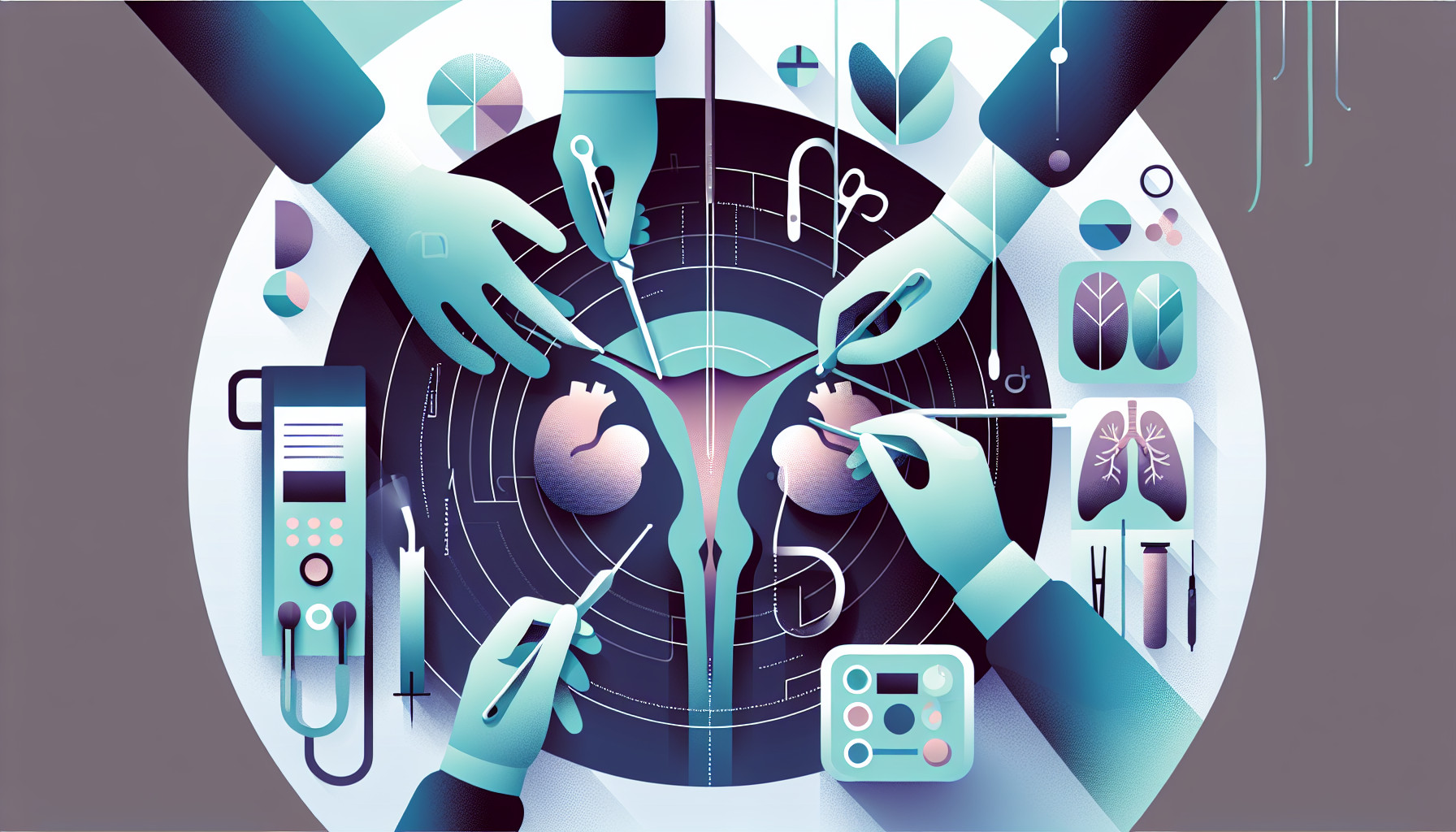Our Summary
This research paper is discussing the pros and cons of different methods of performing a hysterectomy, which is a surgery to remove a woman’s uterus. A lot of previous research has looked into how this surgery affects a woman’s overall quality of life, including their physical, mental, and sexual health. The results of these studies vary quite a bit, but it looks like many women are quite happy with the results of a hysterectomy done through a laparoscope, a small tube with a light and camera that allows the surgeon to operate without making a large incision. The paper suggests that this method might be better than other ways of doing a hysterectomy. However, more research is needed to fully understand how this type of surgery affects a woman’s quality of life, as this is a key consideration for surgeries that are not life-saving but meant to improve a person’s wellbeing.
FAQs
- What are the potential benefits and drawbacks of laparoscopic hysterectomy?
- How does laparoscopic hysterectomy impact quality of life and patient satisfaction?
- What are the areas for further investigation regarding the impact of laparoscopic hysterectomy on quality of life?
Doctor’s Tip
One helpful tip a doctor might tell a patient about laparoscopic hysterectomy is that it is a minimally invasive procedure that typically results in less pain, shorter recovery time, and smaller incisions compared to traditional open surgery. This can lead to a quicker return to normal activities and less scarring. Additionally, patients may experience improved overall quality of life outcomes and high levels of satisfaction with the laparoscopic approach. It is important to discuss any concerns or questions with your doctor before undergoing the procedure.
Suitable For
Patients who are typically recommended laparoscopic hysterectomy include those with benign gynecologic conditions such as fibroids, endometriosis, abnormal uterine bleeding, or pelvic pain. Laparoscopic hysterectomy is often recommended for patients who desire a minimally invasive approach with less pain, shorter hospital stay, faster recovery time, and lower risk of complications compared to traditional open hysterectomy. Additionally, patients who are younger, have a lower body mass index, and do not have severe pelvic adhesions or a significantly enlarged uterus may be good candidates for laparoscopic hysterectomy. It is important for patients to discuss their individual medical history and preferences with their healthcare provider to determine the most appropriate treatment option for their specific situation.
Timeline
Before Laparoscopic Hysterectomy:
- Patient consults with gynecologist to discuss symptoms and treatment options
- Patient undergoes pre-operative testing and evaluation
- Patient schedules surgery and receives pre-operative instructions
- Patient undergoes laparoscopic hysterectomy procedure
After Laparoscopic Hysterectomy:
- Patient wakes up in recovery room and is monitored for any complications
- Patient is discharged from hospital within 24 hours
- Patient experiences post-operative pain and discomfort, which is managed with pain medication
- Patient gradually resumes normal activities and returns to work within 2-6 weeks
- Patient follows up with gynecologist for post-operative care and monitoring
- Patient reports improved quality of life, including relief from symptoms such as heavy bleeding and pelvic pain
- Patient may experience improved sexual functioning and overall satisfaction with the outcome of the surgery.
What to Ask Your Doctor
- What are the potential risks and complications associated with a laparoscopic hysterectomy compared to other types of hysterectomy?
- How long is the recovery period expected to be after a laparoscopic hysterectomy?
- Will there be any long-term effects on my physical health or sexual function after a laparoscopic hysterectomy?
- What is the success rate of a laparoscopic hysterectomy for my specific condition?
- How many laparoscopic hysterectomies have you performed, and what is your experience with this procedure?
- Will I need to take any special precautions or follow a specific post-operative care plan after a laparoscopic hysterectomy?
- What are the potential benefits of choosing a laparoscopic hysterectomy over other types of hysterectomy?
- Are there any specific factors that may make me a better or worse candidate for a laparoscopic hysterectomy?
- How will a laparoscopic hysterectomy impact my fertility or future reproductive options?
- Are there any alternative treatment options that I should consider before deciding on a laparoscopic hysterectomy?
Reference
Authors: Fortin C, Hur C, Falcone T. Journal: J Minim Invasive Gynecol. 2019 Feb;26(2):219-232. doi: 10.1016/j.jmig.2018.08.019. Epub 2018 Sep 1. PMID: 30176360
